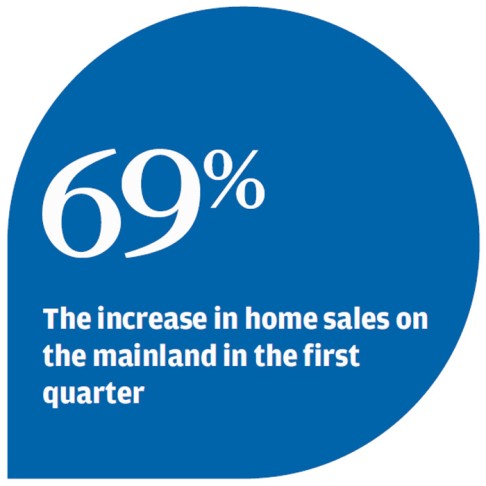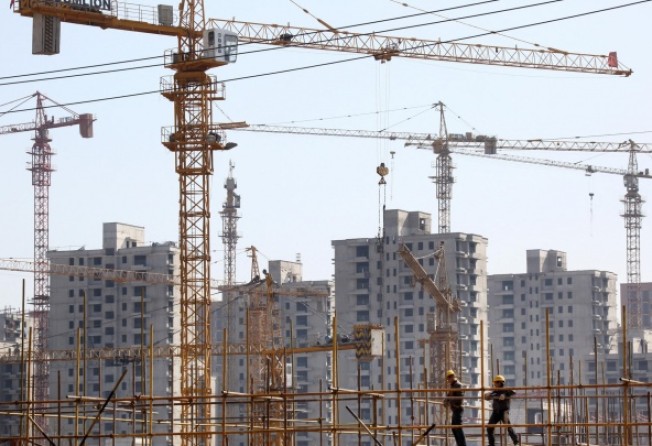
Plan to extend property tax trial upsets investors

Shares of mainland property stocks fell across the board yesterday after the top economic planning agency indicated "concrete action" would be taken this year to extend a trial property tax to more cities.

Two years ago, a property tax was introduced in Shanghai and Chongqing on a trial basis.
"The tax expansion will not only cover the first but all second-tier cities," said Alan Chiang Sheung-lai, the head of residential property at DTZ Greater China.
Property stocks reacted negatively to the news. China Overseas Land & Investment fell 1.7 per cent to HK$23.10, Country Garden dropped 1.98 per cent to HK$4.45 and Shimao Property lost 1.19 per cent to HK$16.62.
Market speculation is that the government intends to extend the property tax to Hangzhou, Nanjing, Shenzhen and Qingdao.
"The property market is clouded by growing uncertainty, wary of further cooling measures to be introduced by the mainland authorities," Chiang said.
Home sales have slowed after the number of transactions rose to unprecedented levels, with year-on-year growth of 69 per cent in this year's first quarter.
Alan Jin, an analyst at Mizuho Securities, said the sharp rise was mainly because of the low base for comparison a year ago. But he noted new construction starts had remained subdued.
"Oversupply in the lower-tier cities has been a common explanation for this discrepancy," Jin said. "But with the continued improvement in housing sales, this discrepancy should start to narrow."
He believes inventory will decline in the first and second-tier cities this year.
"With bulls roaring for more than a year in the housing market, inventory levels are very likely to reverse this year," Jin said. "This will happen not only in upper-tier cities but lower-tier cities as well - even if only half of the growth momentum in this year's first four months can be maintained for the rest of the year."
Meanwhile, mainland media reported applications for pre-sale consent at 40 property projects in Beijing had been held up because they were priced too high.